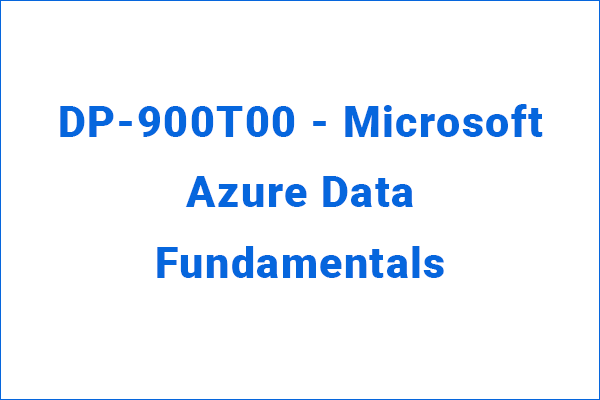DP-900T00 – Microsoft Azure Data Fundamentals
In this DP-900T00 course, students will gain foundational knowledge of core data concepts and related Microsoft Azure data services. Students will learn about core data concepts such as relational, non-relational,big data, and analytics, and build their foundational knowledge of cloud data services within Microsoft Azure.Students will explore fundamental relational data concepts and relational database services in Azure. They will explore Azure storage for non-relational data and the fundamentals of Azure Cosmos DB. Students will learn about large-scale data warehousing, real-time analytics, and data visualization.
Data powers the digital transformation that is sweeping across organizations and society in general. But what is “data”, and how is it represented and used?
Click here to know more details
Data professionals perform distinct roles in building and managing software solutions, and work with multiple technologies and services to do so.
Click here to know more details
Relational database systems are a common way to store and manage transactional and analytical data in organizations of any size around the world.
Click here to know more details
Microsoft Azure provides multiple services for relational databases. You can choose the relational database management system that’s best for your needs, and host relational data in the cloud.
Click here to know more details
Azure Storage is a core service in Microsoft Azure that is commonly used to store non-relational data.
Click here to know more details
Azure Cosmos DB provides a highly scalable store for non-relational data.
Click here to know more details
Organizations use modern data warehousing to build large scale data analytics solutions that generate insights and drive success. Microsoft Azure includes multiple technologies that you can combine to build a modern data warehousing solution.
Click here to know more details
Learn about the basics of stream processing, and the services in Microsoft Azure that you can use to implement real-time analytics solutions.
Click here to know more details
Learn the fundamental principles of analytical data modeling and data visualization, using Microsoft Power BI as a platform to explore these principles in action.
Click here to know more details
The audience for DP-900T00 course is individuals who want to learn the fundamentals of database concepts in a cloud environment, get basic skilling in cloud data services, and build their foundational knowledge of cloud data services within Microsoft Azure.
Prerequisite certification is not required before taking this course. Successful Azure Data Fundamentals
students start with some basic awareness of computing and Internet concepts, and an interest in extracting
insights from data.
Specifically:
This course serves as a prerequisite for the associate-level tracks below:
Skills Measured


To be added

